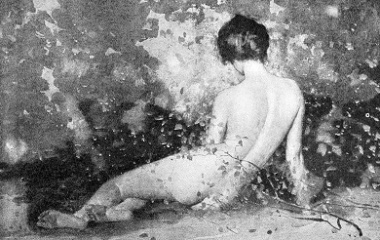- Origin: Greek
- Role: Guardian Spirits
Who are the Dryads?
Trees have long been thought to house spirits within wooded forests and groves throughout the world. Dryads are such spirits, members of the lesser deities known as nymphs in Greek mythology. They uniquely exist to watch over & care for the tree they are born with and in rare cases, groves and other creatures. Dryads are always female and usually inhabit oak, although they can also be found within ash, pine, poplar, apple and laurel trees.
Dryads are considered minor and mortal goddesses who have exceptionally long life spans but are deeply and supernaturally connected to the trees they call home, and are limited to the space of the tree or the forest the tree grows in. If the tree dies, then the dryad could die along with it, which is a tragic vulnerability that is acknowledged by the gods. If a mortal causes the death, then that mortal is usually punished unless he or she attempted to make peace with or appease the Dryad. The Dryads mischievously and fiercely protect their trees as well, and mortals would do well to not act foolishly around any tree inhabited or protected by a Dryad.
There could be an infinite number of Dryads, as many as the number of trees on the earth itself. When seen by mortals they often appear as incredibly beautiful women who are young yet have a strange sense of ancient timelessness to their mannerisms and expressions.
Origin
A Dryad is born with a bond to a particular tree and they share the exceptionally long life span of the tree they are joined with. There are several groups of Dryads with different origins. The Meliai come from the blood of the castrated Uranus when it spilled into the earth. Oreiades are thought to be the daughters of the Dactyls and Hekaterides, with later generations coming from the union of the Oreidades and Satyrs. Other Dryads are simply born from the forests or trees themselves.
Family
The trees and forests are the true families of the Dryads. Dryads can be found in two major distinctions – one which lives within the tree itself and is known as hamadryad, and one who lives close to or near the tree but not within it.
Among the Dryads are several types, each associated with a different kind of tree. The most common are the Hamadryads, born within oak and poplar trees, along waterways or sacred tree groves. The Meliai, of ash trees, are ancient and were wed by men in the Silver Age before the first woman was created, and are believed to be the originators of mankind. Oreiades dwell in mountain pines and wild places. The Maliades and Epimeliad inhabit fruit or apple trees and are guardians of both trees and sheep. The Daphnaie are rare and inhabit laurel trees. Finally there are the Caryatids, which inhabit walnut trees.
History
Dryads are timeless and existed long before man, but mankind has had interactions with them throughout history. A few notable Dryads were taken as wives by men; examples would be Atlanteia and Phoebe who were both wives of Danaus. The gods and sons of gods have seduced some as well.
Chrysopeleia
A dangerous flood threatened the tree that the Dryad Chrysopelia was born within. Arcas, the son of Zeus and Callisto, witnessed the flood as he had been hunting in the forest and he quickly built a dam to change the course of the river and save the tree. Chrysopelia was overcome with love for Arcas and became his wife, and her sons Apheidas and Elatus were born.
Dryope
Dryope existed as a black poplar after being tricked by Apollo. While frolicking with the Hamadryads on Mount Oeta, she was met by Apollo in the disguise of a tortoise. The young maidens took it as a pet and did not know that it was Apollo who had been pursuing Dryope. When Dryope held the tortoise in her lap, he suddenly transformed into a snake, coiled around her and savagely raped her. The other nymphs fled in terror, and she bore a son named Amphissus. Later Amphissus built a temple to Apollo and Dryope became a priestess of the temple, but Apollo returned again as a snake and repeated the rape as she stood by a spring. She transformed into a poplar tree to escape his lust.
Eurydice
Eurydice, an oak Dryad, fell in love with Orpheus through the beauty of the music he played for her. She and Orpheus wed, and she was so beautiful that Aristaeus also pursued her. In her attempt to flee from him, she was bitten by a venomous snake and died. Orpheus bitterly mourned her death and traveled to the Underworld to rescue her from death. His music put Cerebus to sleep and convinced Hades to allow her to return with Orpheus to the realm of the living, but with conditions. Orpheus could not ever look back until they had both reached the upper world, or she would not be permitted to leave the Underworld. At the threshold of the living, Orpheus felt a moment of doubt that Hades may have deceived him and he turned around, gazing on Eurydice who had not yet stepped over the threshold – and she tearfully and tragically was swept back into the Underworld.
Current Influence
Dryads are believed to have beneficial, supernatural powers of nature that bring a sense of awe and wonder to mortals, along with terror and fear as well. They are not something to be taken lightly but are deserving of the respect granted to any divine being. They bring a sense of life and natural being to the places their trees inhabit and are mysterious and unique. Dryads are frequently mentioned in works of poetry, in plays and theater, and in music. They are also respected and worshiped in pagan ritual to this day.











I have spent one hour looking up things on this site 😅🙂👩🏻💻
Hi, When did this article was published ?